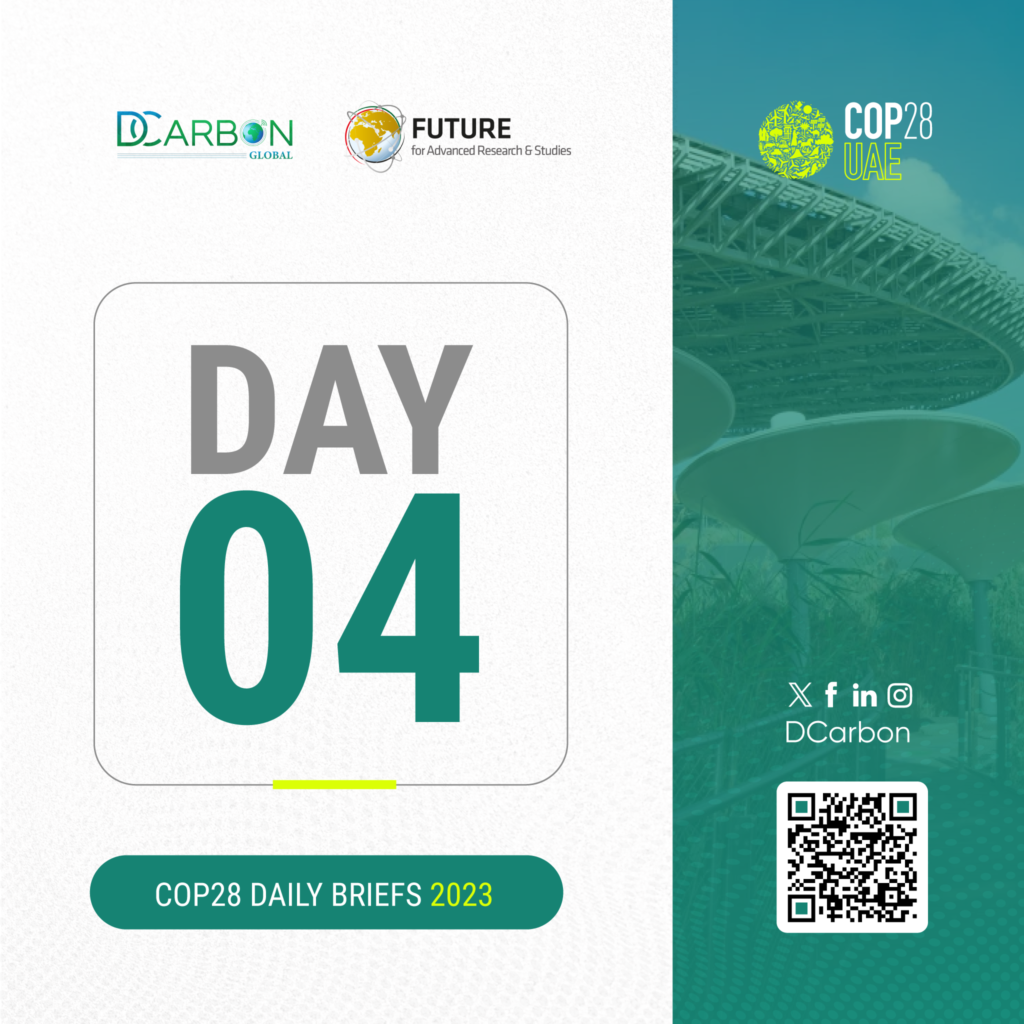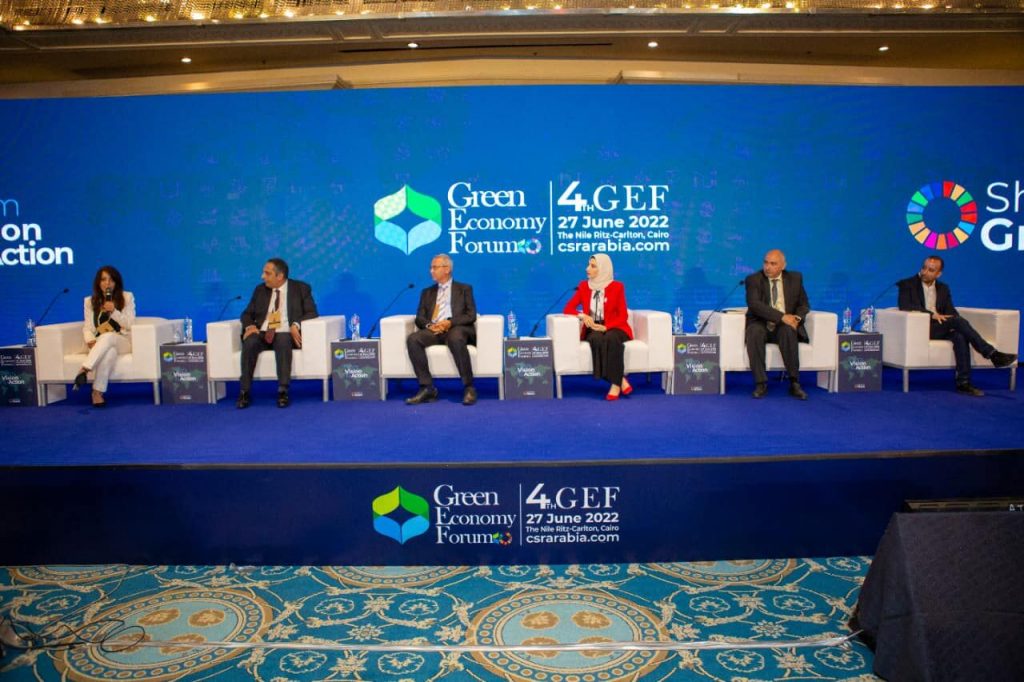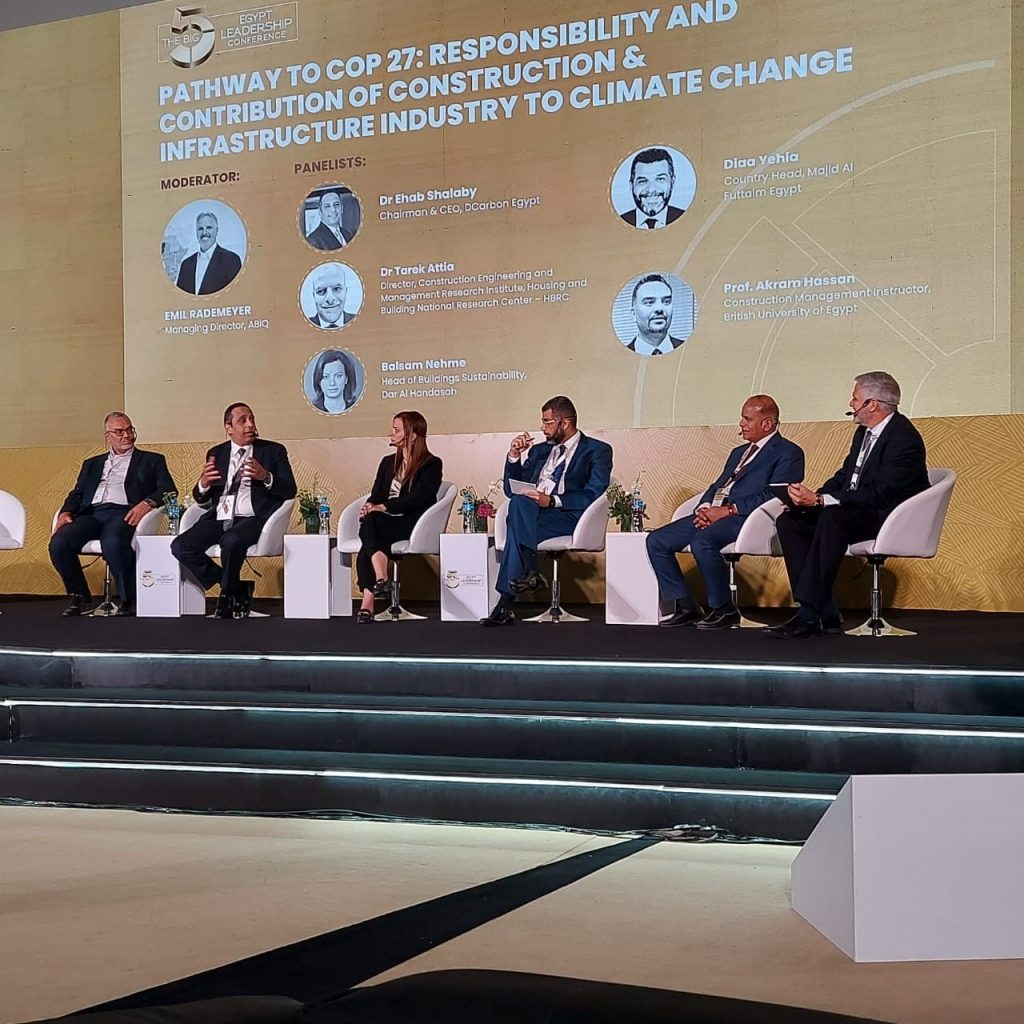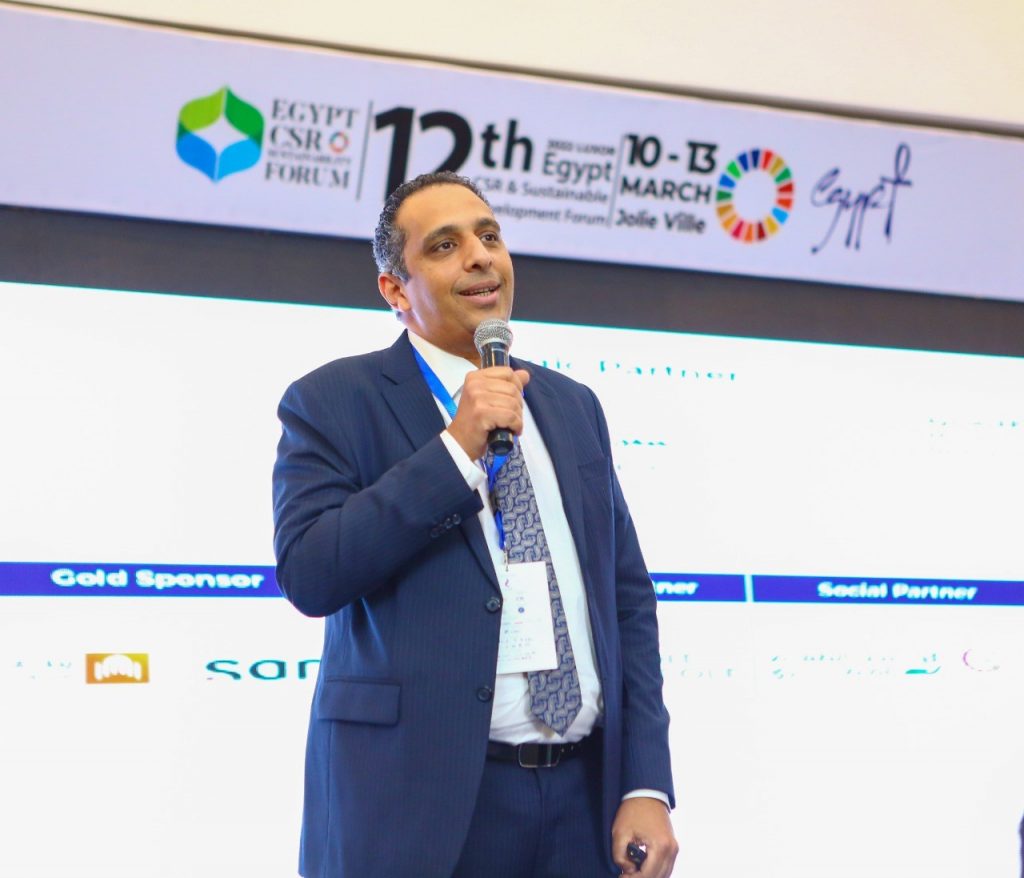Blue Zone
Day Four was all about Health, the negative impact of climate change on health, especially with unequal impacts, and the need for a just transition. Significant new health-climate finance and programs in response to countries’ priorities and needs was announced. It highlighted concrete commitments and progress by governments, international organizations, development banks, philanthropies, and the private sector. Additionally, the events advanced a common understanding of what ‘health and climate’ finance constitutes and improved coordination of climate-health finance efforts.
Over USD 777 Mn has been pledged by Countries and donors to help defeat neglected tropical diseases and improve lives of 1.6 billion people. This was done by a joint health initiative called “Reaching the Last Mile” (RLM) by H.H Sheikh Mohamed Bin Zayed Al Nahyan, President of the UAE, and the Bill& Melinda Gates Foundation.
Taking Early Action to Scale : A Charter for The Future
A growing body of research and data demonstrates how climate change impacts human health. During the évent, a high-level overview of the scientific evidence was demonstrated highlighting the different ways in which climate change is already damaging human health today. Frontline communities and representatives from vulnerable and disadvantaged groups shared their view on how their health and lives are being impacted by climate change. The event aimed at ‘bring science to life’ with real-world examples and case studies.
Business and Philanthrope Climate Forum : Key Initiatives on Nature, Carbon Markets and Renewable Energy
At COP28’s Business & Philanthropy Forum, influential business, and philanthropy leaders, along with multilateral development banks and political figures from emerging economies, unveiled a series of initiatives dedicated to mobilizing resources for climate action. Noteworthy announcements included commitments to preserve nature, facilitate an energy transition, establish a methane abatement accelerator, and initiate the decarbonization of health supply chains. The forum featured key figures such as Kristalina Georgieva, Managing Director of the IMF, Bill Gates, Ray Dalio, and other philanthropists, discussing the impact of philanthropy and transition funding. The day also explored topics like energy, media, climate entrepreneurs’ pitches, and introduced various initiatives, including the Enteric Fermentation R&D Accelerator, The Data for Methane Action Campaign, Join the Planet, First Movers Coalition, Health for Climate, Nature Positive for Climate Action, The Indigenous Peoples Initiative, and the ONE AMAZON & ONE AMAZON Impact Fund. Collectively, these initiatives aim to leverage private sector collaboration to achieve climate and nature goals and address pressing environmental challenges.
Importance of Credible Climate Actions
“As people & planet continue to suffer from devastating climate impacts, our world cannot afford more delays, back-tracking, or greenwashing. It is time to move from promises to action. Concrete Climate Action.” ~ Antonio Guterres, UN Secretary General
Speaking at a discussion on the implementation of recommendations from COP27’s High-Level Expert Group on Net Zero, Guterres highlighted the importance of detailed targets for 2025, 2030, and 2035, along with concrete actions to phase out fossil fuels and accelerate the transition to renewables. He emphasized the need to avoid relying on “dubious” carbon offsets and stated that the collaborative efforts of national governments and non-state actors are crucial in drastically cutting emissions and achieving the race to net zero, as outlined in the report, which serves as a blueprint for credible climate action by non-state actors.
Finance and Global Cooperation for Forests and Oceans
“Ensuring that nature in its total and most holistic form is recognized, supported, and funded as a prerequisite to climate action has been a priority for the COP28 Presidency.” ~ H.E Razan Khalifa Al Mubarak, UN Climate Change High-Level Champion.
During the World Climate Action Summit, the COP28 Presidency and its partners unveiled ambitious initiatives with an initial commitment of USD $1.7 billion to simultaneously address climate and biodiversity goals. UN Climate Change High-Level Champion for COP28, H.E Razan Khalifa Al Mubarak, emphasized the importance of recognizing, supporting, and funding nature as a prerequisite for climate action. Heads of States and Governments announced national and regional investment plans focused on nature-climate action, contributing to the Paris Agreement and the Kunming-Montreal Global Biodiversity Framework. Notable commitments included the UAE’s $100 million for nature-climate projects, Tonga’s $100 million for Pacific Small Island Developing States, and philanthropies pledging $250 million under the Ocean Resilience Climate Alliance. These initiatives align with previous commitments, such as COP26’s Glasgow Leaders’ Declaration, and emphasize the crucial role Indigenous communities play in ecosystem conservation. The session took place on UAE National Day, setting the stage for the upcoming COP28 Nature, Land Use, and Ocean Day on December 9th.
How Climate Change Affect our Health
During the event, a new Charter is launched to get ahead of disasters and work towards a secure future where the money spent on disasters is spent better with proactive risk management and financial preparedness. It will also underpin delivery of Early Warnings as one of the biggest obstacles preventing the conversion of early warnings is the lack of pre-arranged financial resources. Over 98% of crisis financing is still arranged after disasters strike, despite reliable science to predict them. Evidence suggests that twice as many vulnerable persons can be served at the same cost by deploying resources pre-disaster.
Ministerial Forum : Empowering Law Enforcement to Protect Biodiversity and Ensure Climate Resilience
In a historic collaboration at COP28, which marks the first-ever participation of the global law enforcement community at the climate summit, the Ministerial Forum brings together high-level representatives from Asia, Africa, the Americas, the Middle East, and the UN. The Forum addresses the urgent need to safeguard biodiversity and vulnerable communities, with a focus on the essential role of law enforcement in promoting peace and security through building climate recovery and resilience. Furthermore, the Forum unveiled significant global initiatives, concluding with the adoption of the Abu Dhabi Call for Action. The event was Organised by International Initiative of Law Enforcement for Climate (I2LEC) in collaboration with the Ministry of Interior of the United Arab Emirates and the United Nations Office on Drugs and Crime (UNODC)
Green Zone
Transition to Green Law Enforcement
The International Initiative of Law Enforcement for Climate (I2LEC) has participated for the first time at the Conference of Parties, it has concluded an event in the Green Zone of COP28, rising the importance of preparing law enforcement for the impacts of climate change and addressing the important issue of environmental crime. In This event law enforcement organizations from across the world are present and contributing to international climate dialogues for the first time.
speakers engaged in a panel discussion offering their expert analyses and focusing on diverse perspectives to see how the transition to green law enforcement could take place, positing solutions for how to increase law enforcement preparedness, training, and awareness. Speakers represented organizations including the UAE Ministry of the Interior, UNODC, INTERPOL, ESRI, UNPOL, the UAE’s Executive Office of the Anti-Money Laundering and Countering the Financing of Terrorism, the Dubai Civil Defense Force, and the United States Department of Homeland Security.
Egypt Signs Three Agreements for Green Energy Projects
Egypt’s Minister of International Cooperation, Rania Al-Mashat, and the Minister of Electricity and Renewable Energy, Mahmoud Shaker, signed a letter of intent to join the BESS alliance, which is one of the initiatives launched by the Global Energy Alliance for People and Planet (GEAPP)
The Egyptian Suez Canal Economic Zone (SCZONE) and the Ministry of Electricity and Renewable Energy signed agreements with African Development Bank (AFDB), British International Investment (BII), another group of international financial institutions and Norwegian energy company Scatec to launch three green projects in Egypt.
The project of SCZONE aims to produce green methanol to fuel ships, and the second project is in Damietta to produce green ammonia while the third project is a partnership with Scatec, AFDB and BII to build one gigawatt solar energy plant using the Battery Energy Storage System (BESS).
Al Gore ’s Climate Trace Group developed a Tool to Decarbonize Supply Chains
The Climate Trace, co-founded by Al Gore, is a global coalition that has developed a detailed database to track global greenhouse gas emissions at the individual level. This new dataset has gained the attention of major companies like Tesla, Boeing, and General Motors, they are among the companies that have signed up to use this new database. The dataset covers more than 350 million sources of greenhouse gas emissions pollution that comes from individual power plants, steel mills and mining operations and others. According to the co-founding member of the coalition Gavin McCormick, the information provided by this dataset will make the companies able to build a low-emissions supply chain rather than relying on suppliers’ self-reported emissions data.
How Small and Medium Enterprises Can Change The Course of Action in The Climate Fight
According to the UNECE, Decarbonising the global economy demands substantial investment. With Small and Medium Enterprises (SMEs) playing a pivotal role as they form most of the world’s value chains. An estimated $50 trillions is required to shift global supply chains to net zero by 2050. SMEs, integral to these value chains, prioritize energy efficiency, renewable energy, and enhanced industrial processes to decarbonize while staying competitive. However, their efforts are often hindered by significant upfront capital needs, limited awareness of available financing, and a shortage of relevant skills. Overcoming these challenges is crucial to ensure SMEs can actively contribute to the global transition to a sustainable and low-carbon future
Sources
https://english.ahram.org.eg/NewsContent/3/16/513345/Business/Energy/Egypt-signs-agreements-for-three-green-energy-proj.aspx
https://finance.yahoo.com/news/transitioning-green-law-enforcement-cop28-144500184.html?.tsrc=fin-srch
https://unece.org/climate-change/press/unece-and-partners-advocate-transition-finance-cop28-help-hard-abate-sectors
https://www.bloomberg.com/news/articles/2023-12-03/cop28-al-gore-backed-group-releases-a-new-tool-to-track-co2-emissions
https://www.linkedin.com/feed/update/urn:li:activity:7135578243503468544/





